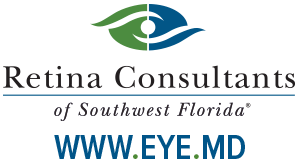The Eyes And The Diet
- The first step in any good prevention strategy is to undergo a thorough eye exam, said Dr. Ashish Sharma of Retina Consultants of Southwest Florida, a group with five offices in the region. An ophthalmologist can see changes in the eye that a patient may not notice, and that may indicate an underlying disease, Sharma said.
- The retina – the light-sensitive tissue in the eye that receives images and conveys information about them to the brain – is central to Sharma’s practice. He treats retina damage in the form of macular degeneration, the leading cause of blindness in U.S. adults over 55, affecting 10 million Americans.
- Certain foods and supplements can boost retinal health and possibly stave off disease, Sharma said. Leafy green vegetables such as kale, spinach and broccoli deserve priority in the diet, as do fish that are high in omega-3 fatty acids such as tuna, salmon, herring, lake trout and sardines.
- Sharma cites a clinical study called AREDS, or Age-Related Eye Disease Study sponsored by the National Institutes of Health, as the standard for finding supplements that enhance eye health. There are many different brand names that can be confusing to navigate, but Sharma said that using supplements with the term “AREDS formula” on the label is a good rule. The AREDS formula contains vitamins A, C, E, zinc, copper and beta-carotene, Sharma said. So the old advice about eating carrots, which contain beta-carotene, is true.
Article originally appeared in the Fort Myers News-Press on 2/5/13
